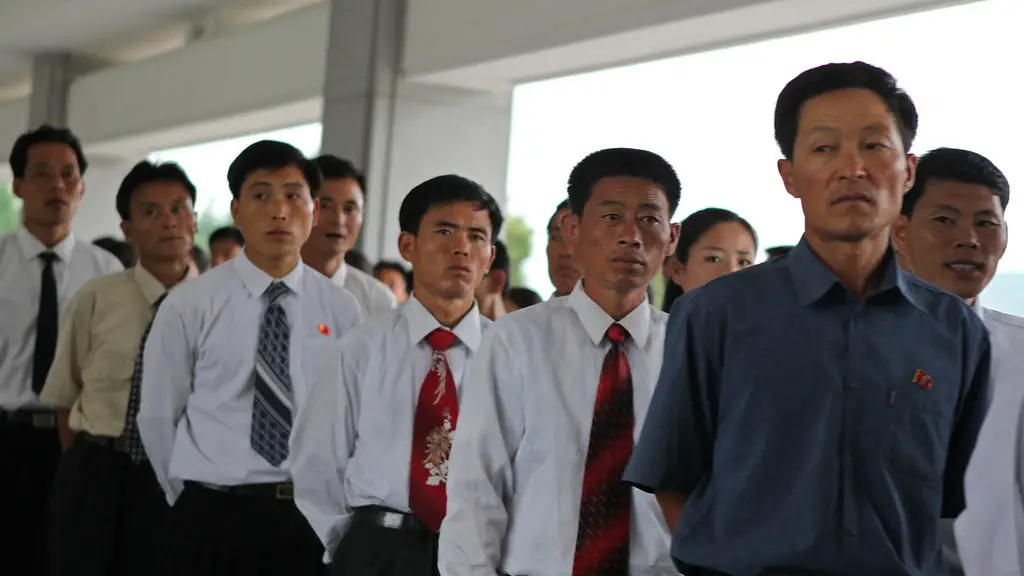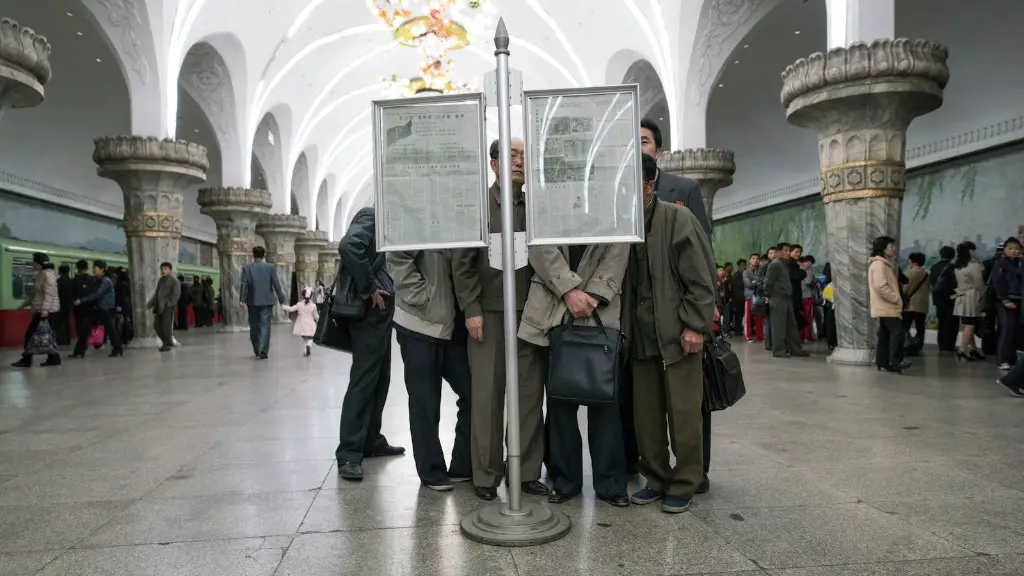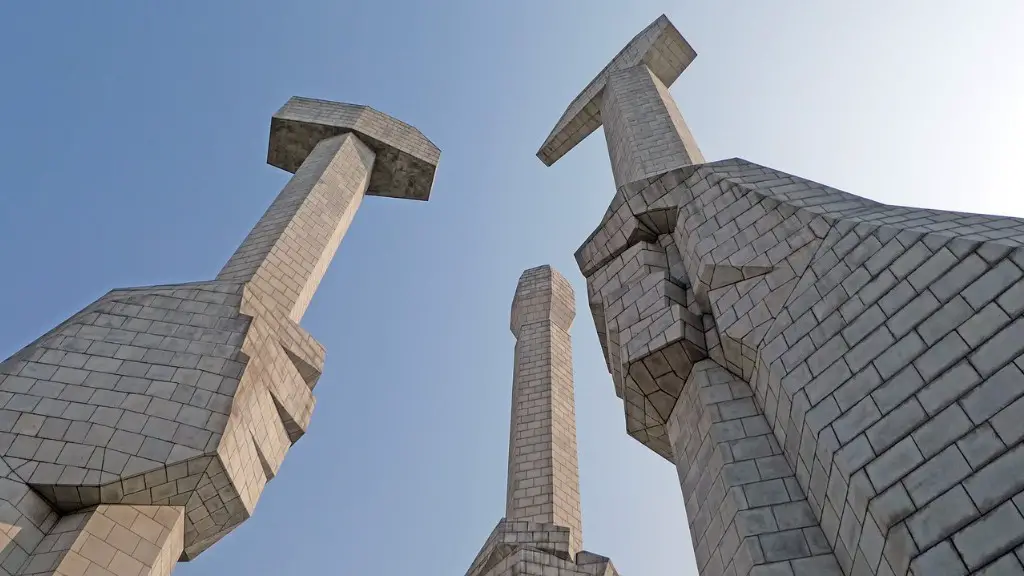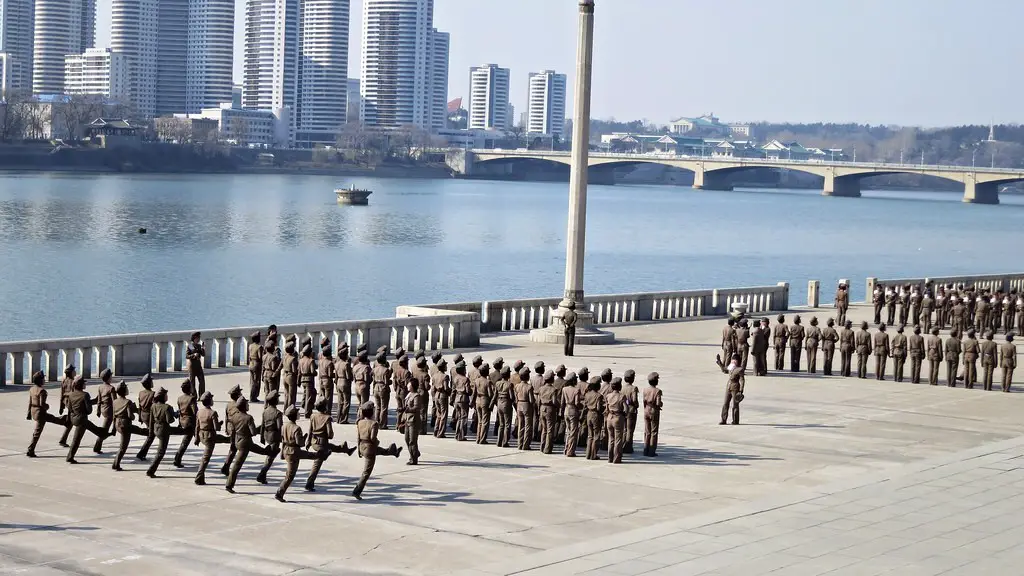Economic Sanctions
The United States’ economic sanctions against North Korea have been in place for years, initially dating back to 2006. The sanctions are intended to impede the country’s nuclear weapons program and to influence the way Pyongyang relates to the rest of the world. Last year, under President Trump, the United States extended the sanctions against North Korea. Some of the policies include the ban on US imports from North Korea, US citizens and companies to not engage in banking with North Korean entities, the blocking of North Korean government assets, and restrictions on access to the US financial system.
The sanctions were extended and made more stringent as the United States adapted a more hawkish position on North Korea. Considering the nuclear weapons program and the international sanctions, no one can deny the destabilizing effect on the Korean peninsula and the region. Because of the United States’ strong stand against North Korea, the country is at risk of intensifying the economic crisis it has grappled with in the past.
Economic experts note that, if no improvement is made in the near future, North Korea may experience an economic recession in the coming years. The alarming conditions of its citizens’ well-being and living standards might worsen as the country is not able to achieve the economic development it requires. Nonetheless, despite the sanctions put in place by the US government, North Korea still possesses nuclear weapons and is evolving as a nuclear state.
If the United States applied a softer stance on North Korea, the economic sanctions can eventually be lifted. Furthermore, sanctions need to be removed for the nation to experience economic redevelopment. Experts say that allowing the country to rebuild itself will restore confidence and the economic crisis can be decisively tackled.
However, the United States has been unwilling to remove or loosen the sanctions in spite of a rapid increase in the partnership between North Korea and other nations.Since there is little incentive currently for the United States to abandon the sanctions, it remains unclear when the country will start to lift economic sanctions from North Korea.
Nuclear Talks
In 2018 President Trump hosted a summit in Singapore with North Korean leader Kim Jong-un for the first time in history.The summit was aimed at finding a peaceful solution to the issue of the North Korean nuclear issue. The two leaders signed an agreement in which North Korea promised to strive for peace and denuclearization of the Korean peninsula. In addition, North Korea has agreed to the inspection of some nuclear facilities and the destruction of certain nuclear sites.
Since then, the agreement has been met with skepticism by some and hope by others. Skeptics are fearful that North Korea may use the agreement to buy themselves time to increase their own military capabilities, while opponents of the agreement are wary that Kim Jong-un may renege on his promises as he has famously done in the past. Supporters of the agreement are more optimistic, believing in the possibility of a peaceful resolution to the decades-long conflict between North Korea and the United States.
The United States has taken the position that North Korea must show concrete evidence of their commitment to the agreement before any further talks take place. The United States demands that North Korea adhere to strict sanctions for the future of the agreement. Furthermore, US forces under the leadership of President Trump are continuing intelligence operations and reconnaissance missions around the Korean peninsula.
The current stalemate in negotiations is unlikely to change in the near-term. North Korea seems determined to keep their nuclear weapons program in place and the United States believes that they must first show progress on the agreement if they are going to make progress. Meanwhile, a majority of experts believe that regular diplomatic dialog and exchanges are necessary for the successful implementation of the agreement.
Military Strategy
Following the Singapore summit, North Korea agreed to suspend their nuclear and missile tests. Under the agreement, North Korea also committed to dismantling certain test sites. So far, North Korea appears to have moved forward with their end of the agreement, whereas the United States has not done much to reciprocate. This has caused some tension, as the United States has held back from any action that could be perceived as downgrading their military posture in the region.
In response, the United States implemented a strategy of “compellence”, which focused on demonstrating the United States’ military strength as a deterrent, rather than attempting to overthrow the North Korean regime. This strategy was put in place to keep North Korea from developing more advanced weaponry and threatening global security. President Trump directed US forces stationed in the region to monitor North Korean activities and increase surveillance.
The United States military is also bolstering its presence in the region, sending additional warships and aircraft to the Korean peninsula. Although the US military posture in the region has been mostly defensive, it still serves as a reminder to North Korean leaders of the capabilities of their most powerful opponent. In addition, the United States is working to strengthen security within the region, supporting countries such as Japan and South Korea who wish to confront North Korea’s threats.
It is unclear what the long-term implications of the United States’ military strategy will be. On one hand, the presence of the US military in the region helps to deter North Korea from further nuclear proliferation, yet it also possibly sets the stage for an armed confrontation. As the tension between the two nations remains high, all eyes are on the situation to determine what the future holds.
Impact on Global Crises
The conflict between North Korea and the United States has global implications and affects the way other nations handle similar situations. The stand-off between the United States and North Korea is a testament to the power of international diplomacy and serves as an example of the lengths to which nations are willing to go to uphold their security interests. In this sense, it serves as a reminder of the power of international law in preserving peace and stability. As the United States and North Korea continue negotiations, the outcome will serve to guide decision making in the international community.
Moreover, North Korea’s nuclear weapons affect the security of the region. The presence of North Korea’s nuclear arsenal increases regional tension and sets the stage for potential arms races. This also increases the number of potential causes of conflict, as one nation’s actions can be seen as a provocation by another nation. Therefore, it is important for all nations to work together to address the underlying causes of the conflict and to find solutions that are acceptable to all.
The outcome of the US-North Korea conflict also has important economic implications. Sanctions have heavily impacted North Korea’s economy, and further economic strain could push North Korea further into poverty. The resulting disruption to regional economies could be catastrophic and must be considered when formulating long-term solutions. Moreover, while sanctions are often thought of as a last resort, they can also provide a way to bring a nation in line with the expectations of the international community.
Political Landscape
The political landscape in North Korea is highly volatile and unpredictable. Kim Jong-un’s authoritarian rule has provoked public dissent among the population and strengthened international pressure to force change. Meanwhile, the United States and other countries have increased their calls for more rights for the North Korean people. However, North Korea has so far refused to accept any form of democracy or democratization.
The United States has also been critical of Kim Jong-un’s human rights abuses. President Trump has criticized the country’s violation of the rights of its citizens, calling out the lack of freedom of expression and the mistreatment of political prisoners. The President has also called for an end to North Korea’s nuclear weapons program as well as its human rights abuses.
The North Korean government has long been resistant to any criticism or change, however the nation is slowly beginning to open up. Late last year, North Korea held important talks with South Korea and the United States to discuss the progress of denuclearization and the potential to improve relations between the two countries. North Korea has also expressed a willingness to return abducted citizens, a sign that the nation may be moving towards more openness.
Despite the recent diplomatic efforts, it remains to be seen exactly how North Korea’s political landscape will evolve in the coming years. The nation’s commitment to human rights and denuclearization must be tested one day at a time and the political landscape will greatly influence the situation between North Korea and the United States.
International Cooperation
Although the United Nations have imposed restrictions on North Korea and there have been calls for increased international sanctions, many countries have expressed their desire to cooperate with North Korea. South Korea, Japan, China, and Russia have made attempts to engage North Korea diplomatically, promoting long-term peace and reconciliation.
Most recently, South Korean President Moon Jae-in has proposed the possibility of a trilateral cooperation among North Korea, South Korea, and the United States. The proposal was met with some hesitation as many have expressed concerns that such a move could potentially create instability in the region. However, some have taken a more charitable view, seeing the potential to build a permanent peace in the Korean peninsula.
Japan, for example, has proposed a “comfort women” agreement to address a decades-long issue between the two countries. The proposal aims to reconcile the two countries while also building deeper trust and understanding between North Korea and the United States. China has also engaged in diplomatic talks and has provided support to North Korea in the past.
International cooperation is essential to the resolution of the North Korean crisis. As the United States and North Korea continue to engage in dialogue, it is important for other countries to demonstrate a willingness to lend a hand. While it is important to be realistic about North Korea’s potential reactions, international actors must continue to work together and remain dedicated to the goal of a lasting peace on the Korean peninsula.





